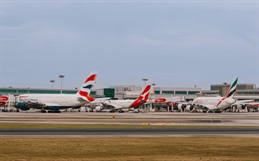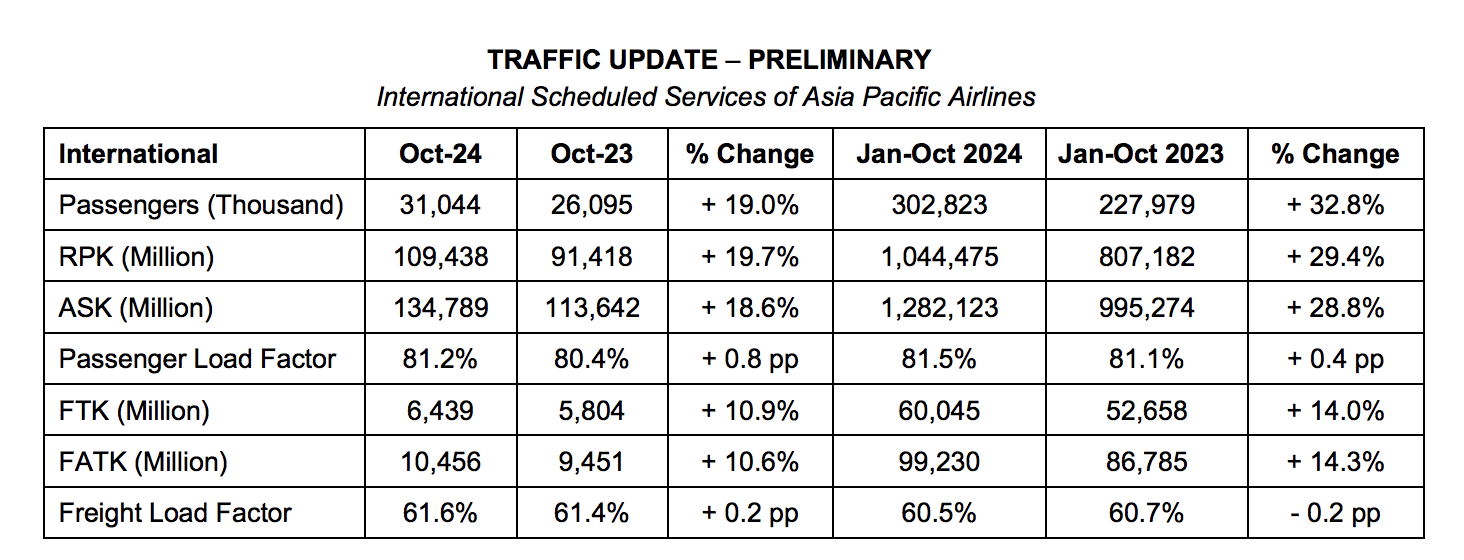
Airlines in the Asia Pacific region recorded another month of cargo growth in October, driven by restocking moves ahead of the holidays.
Traffic figures released by the Kuala Lumpur-based Association of Asia Pacific Airlines (AAPA) showed that international air cargo demand — measured in freight tonne-kilometres (FTK) — rose by 10.9% compared to the same month last year.
This is a steeper growth than the 8.9% year-on-year growth in September.
 [Source: AAPA]
[Source: AAPA]
AAPA said the region's airlines continued to benefit from growing demand for timely air shipments.
"International air cargo markets also saw potent growth, supported by businesses restocking inventories in preparation for the year-end holiday season and major online sales events," the airline association added.
For October, offered freight capacity increased by 10.6%, led by continued growth in international belly-hold capacity. As a result, the average international freight load factor saw a marginal increase of 0.2 percentage points to 61.6%.
"The sturdy demand, along with capacity constraints caused by ongoing supply chain disruptions, resulted in an average load factor of 81.5% during the same period," Subhas Menon, director general of AAPA.
"Cargo demand rose sharply on major trade lanes, driving a 14% increase in international air freight volumes during the first ten months of this year. This was on the back of robust consumer demand and disruptions to maritime shipping due to security risks in the Red Sea," he added.
Looking ahead, the AAPA chief said the outlook for travel markets remains positive, buoyed by growing demand in both leisure and business segments.
Meanwhile, challenges remain for carriers in meeting the demand, notably due to supply chain disruptions and delays in aircraft deliveries.
"On the cargo side, markets are expected to remain vibrant through the remainder of the year despite some economic uncertainties in the advanced economies. Overall, Asian airlines remain well-positioned to adapt to evolving global conditions and to navigate these challenges effectively," Menon said.



